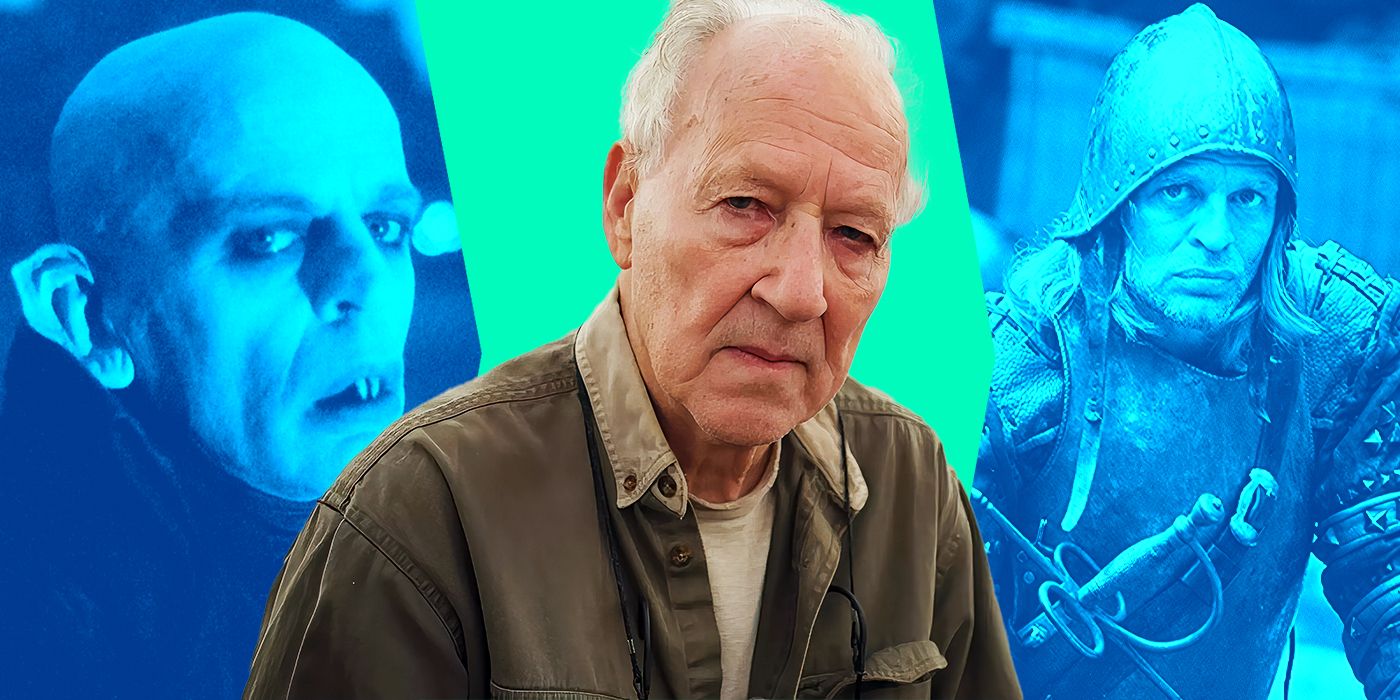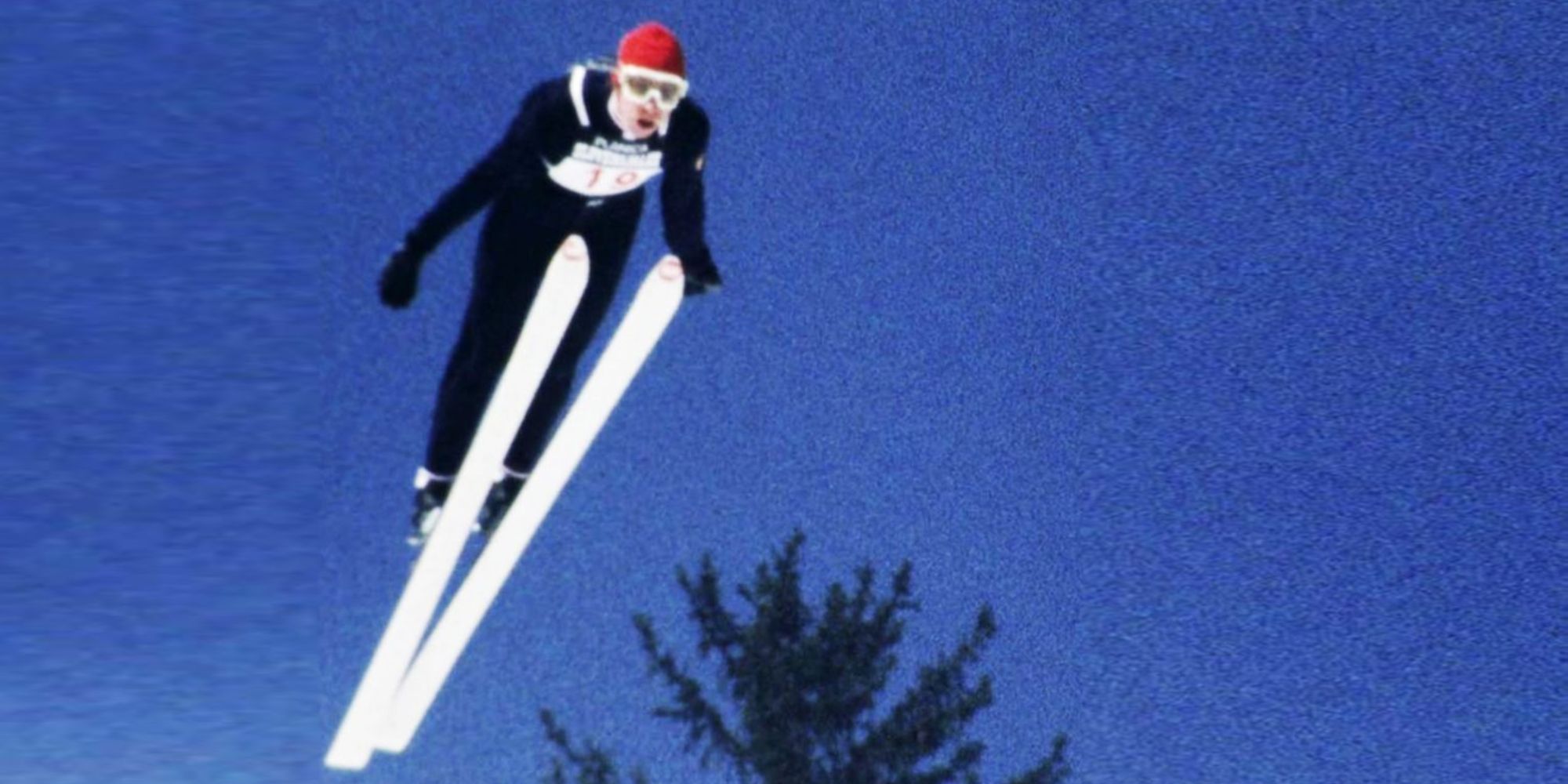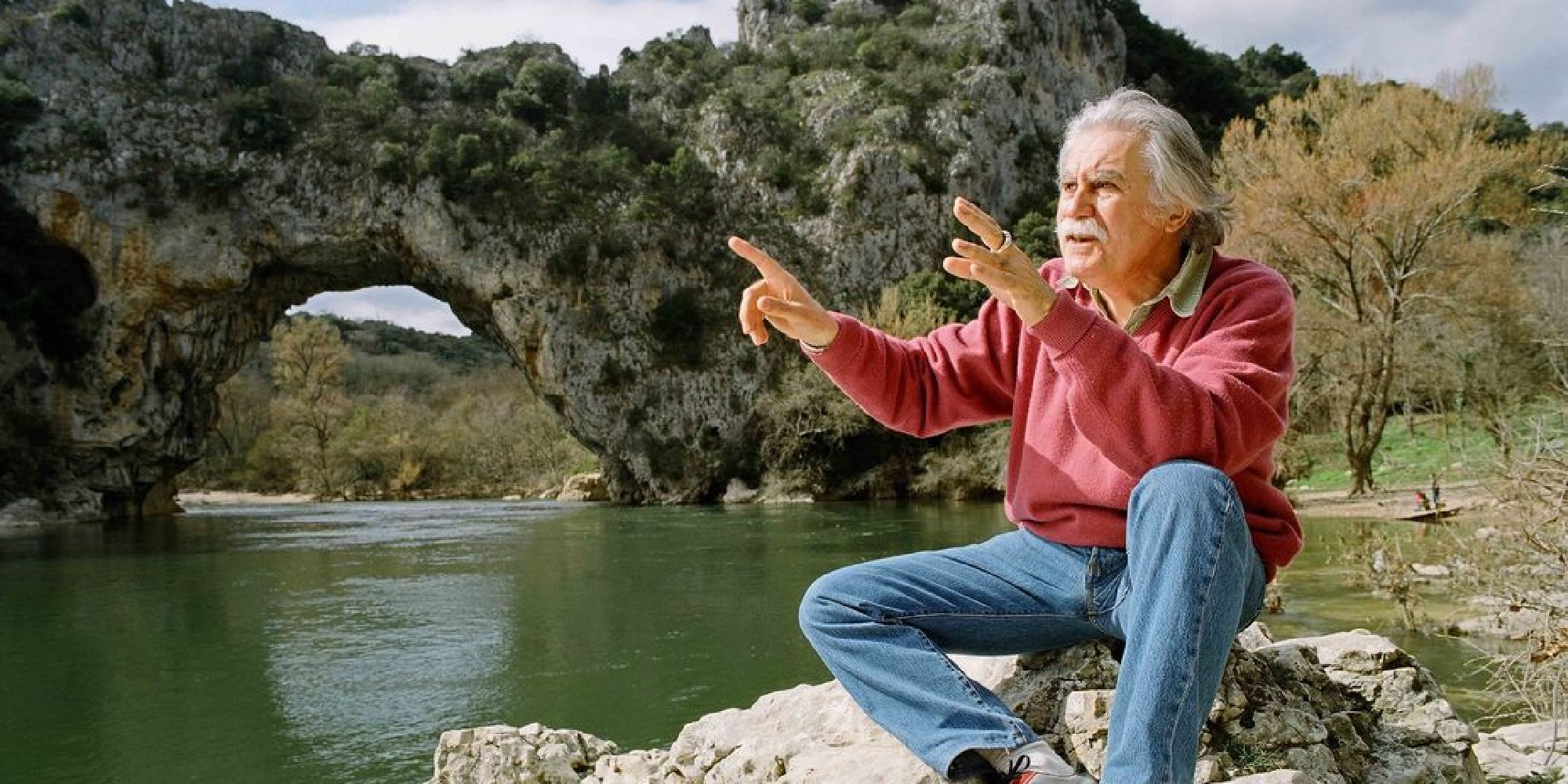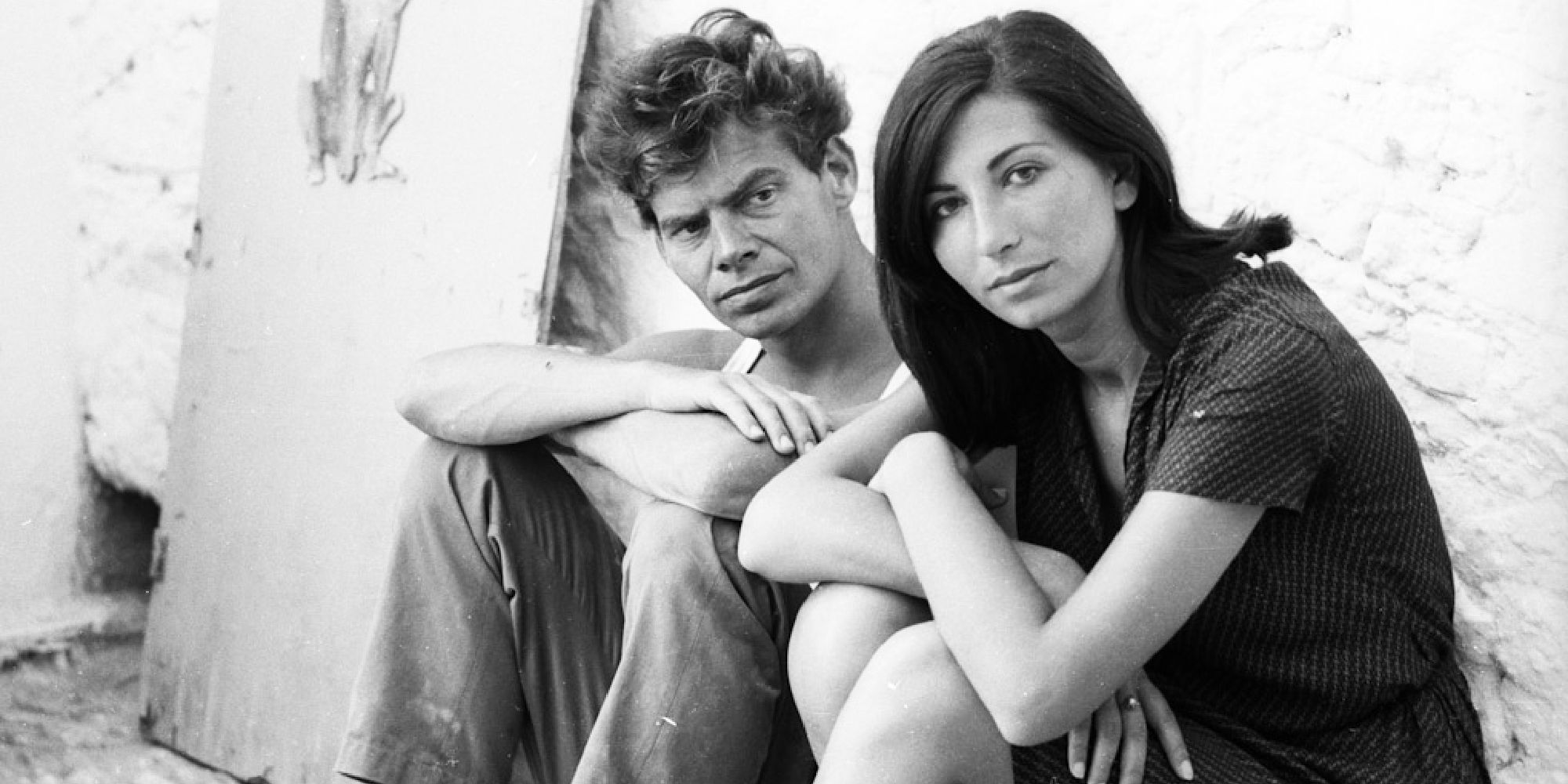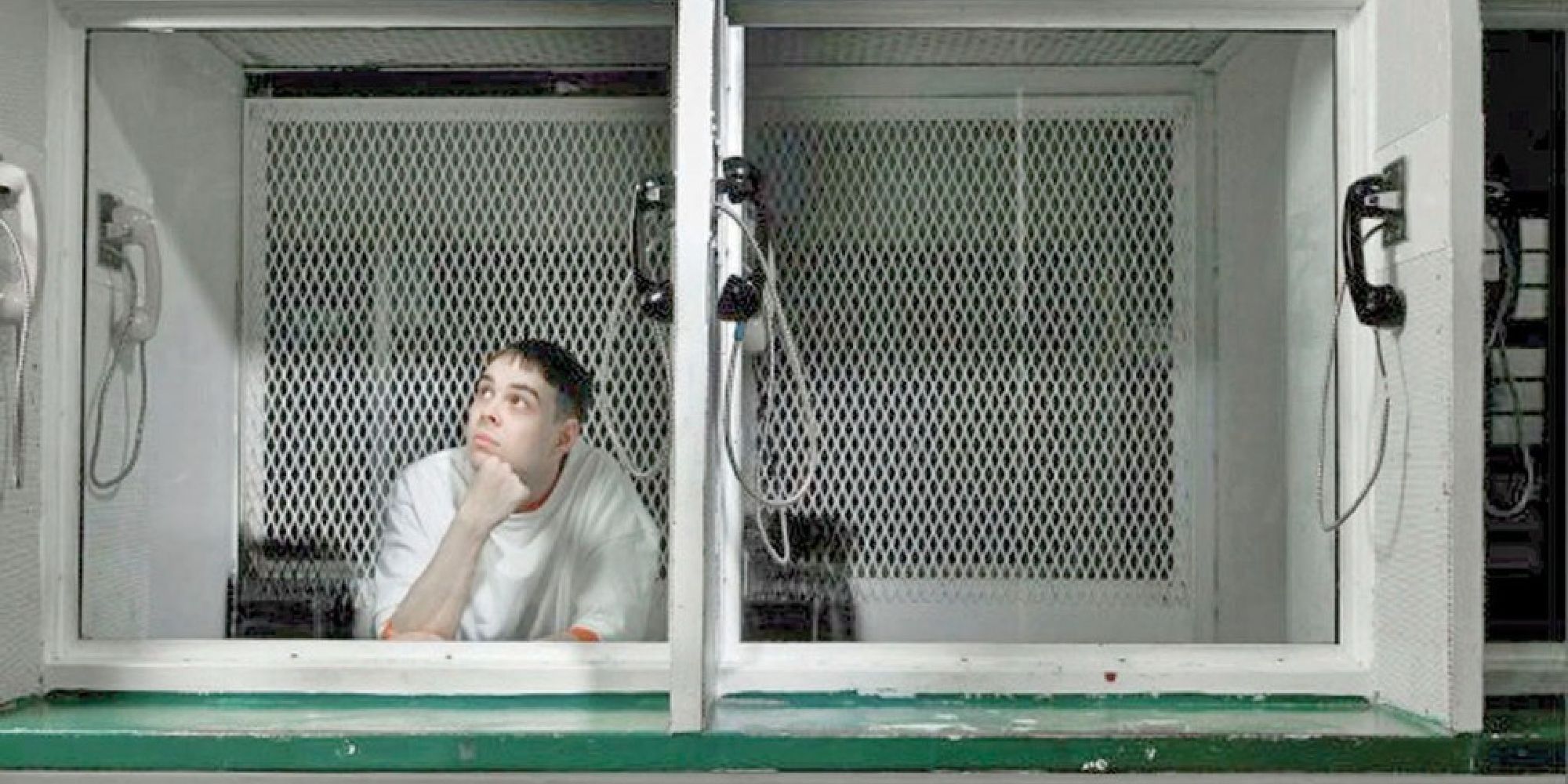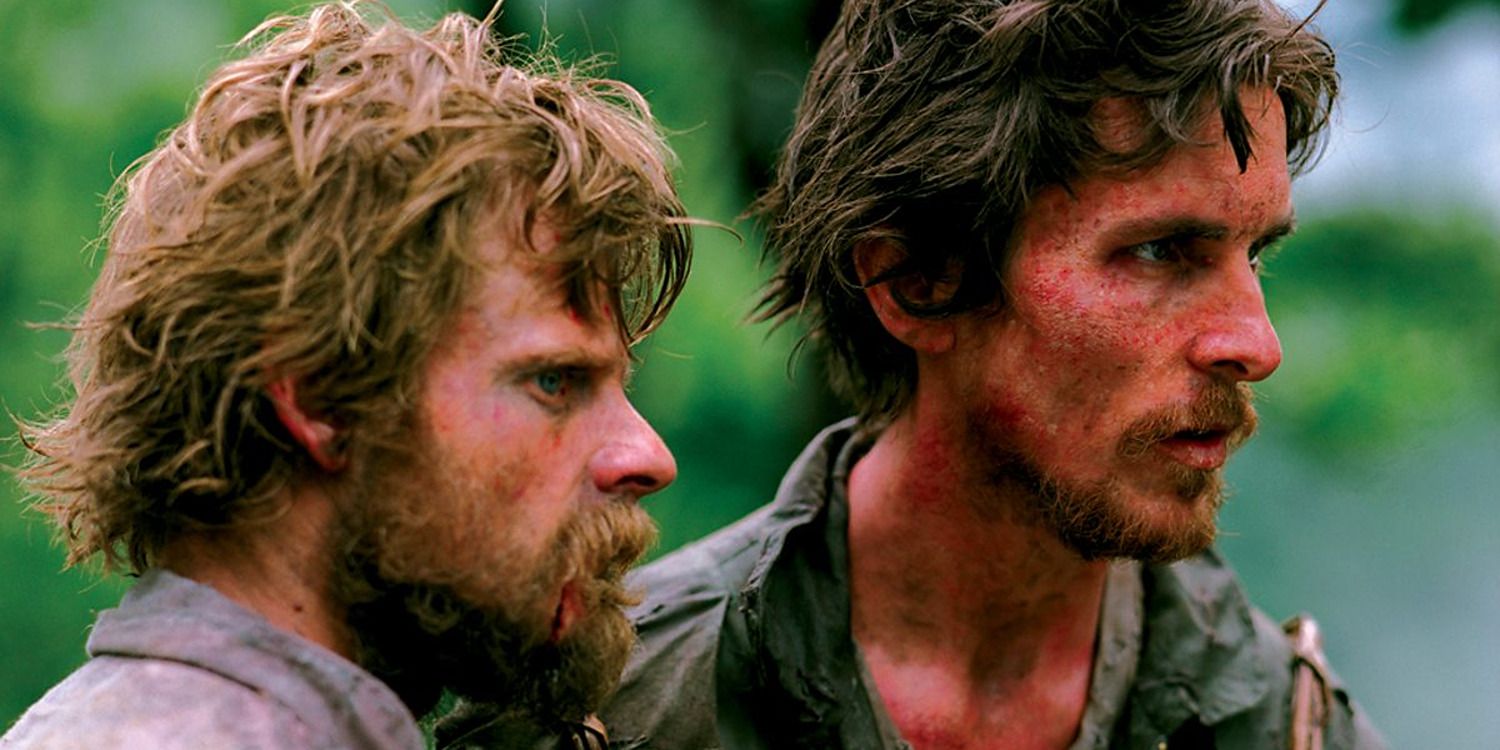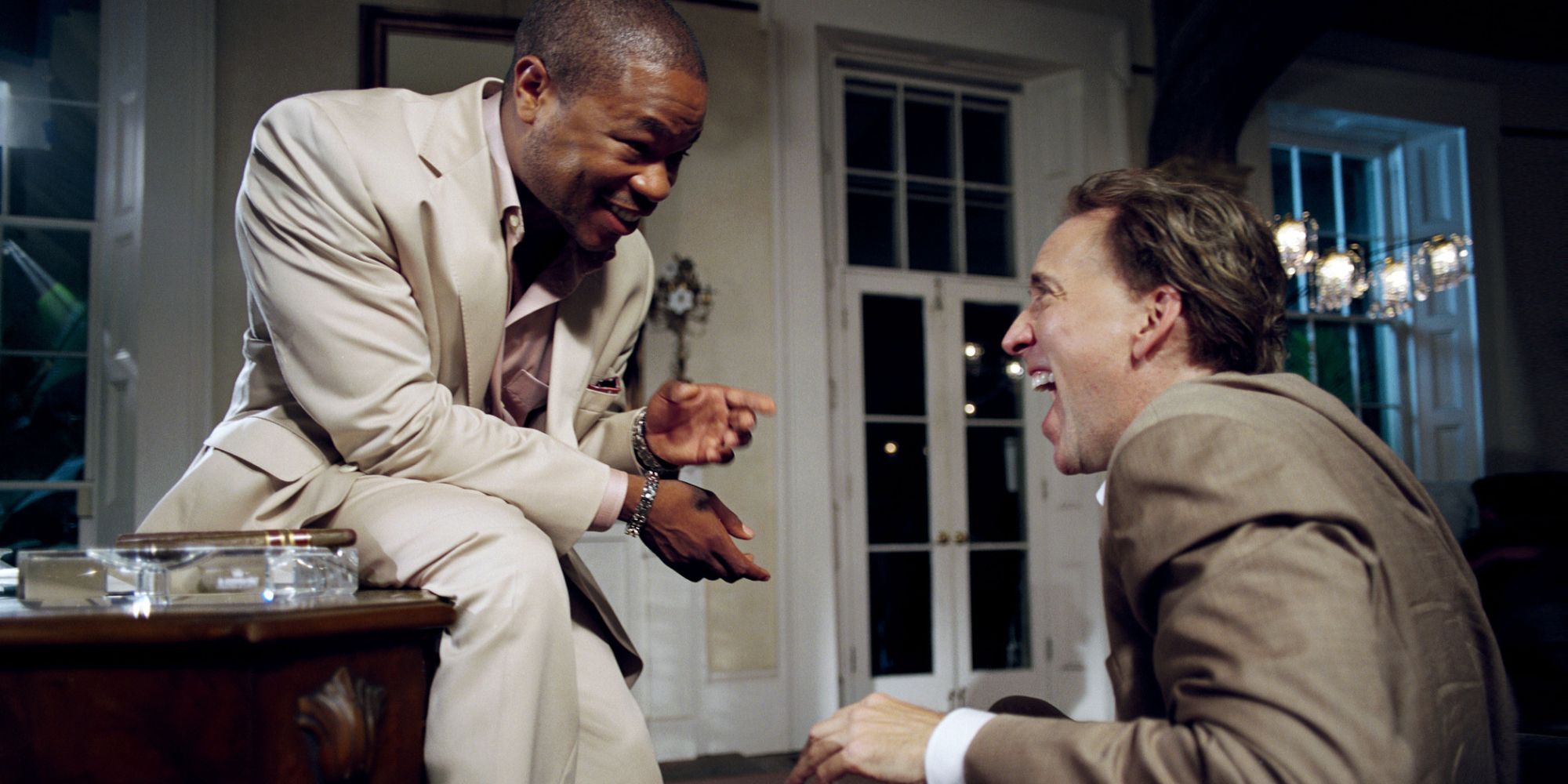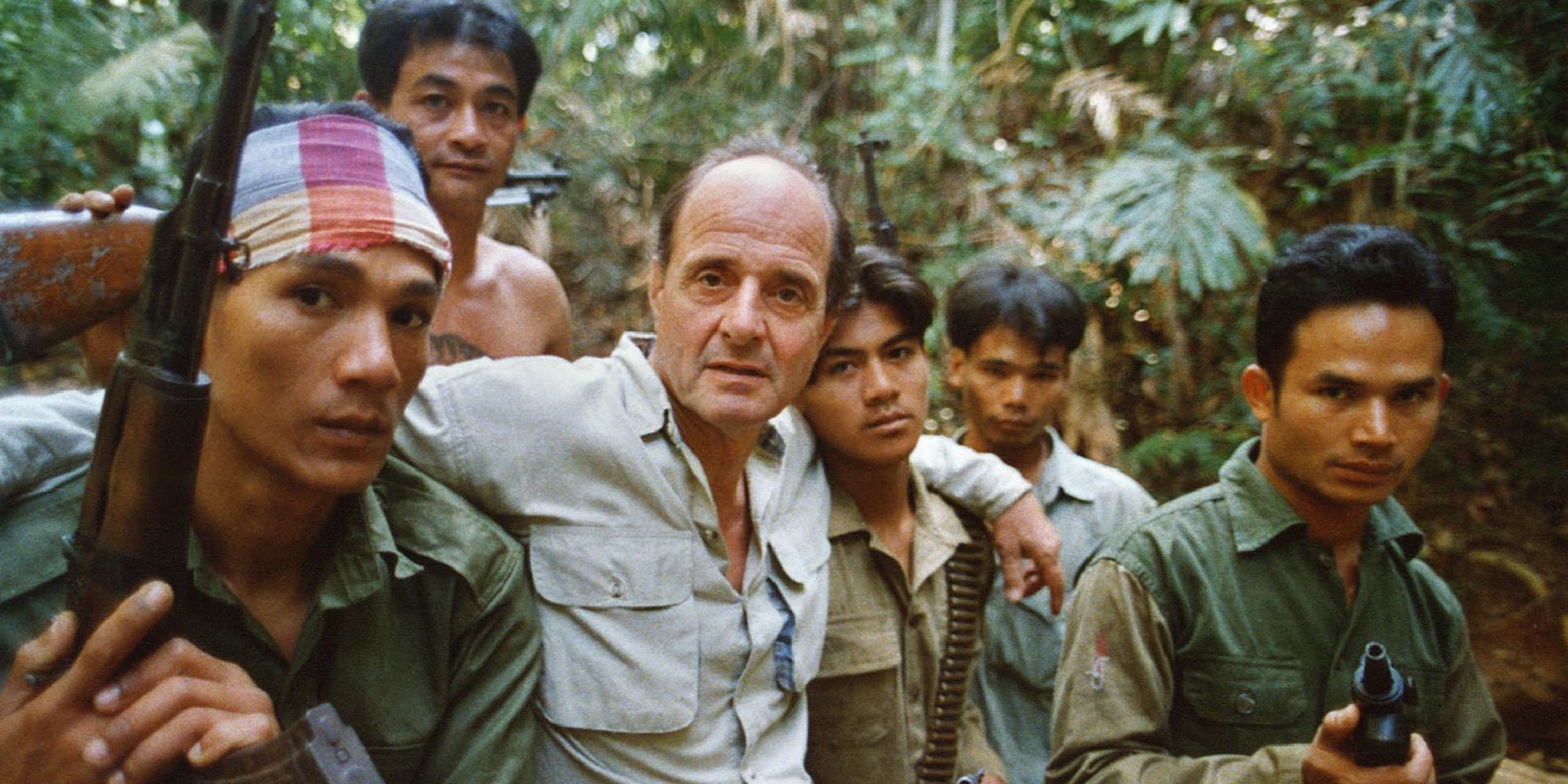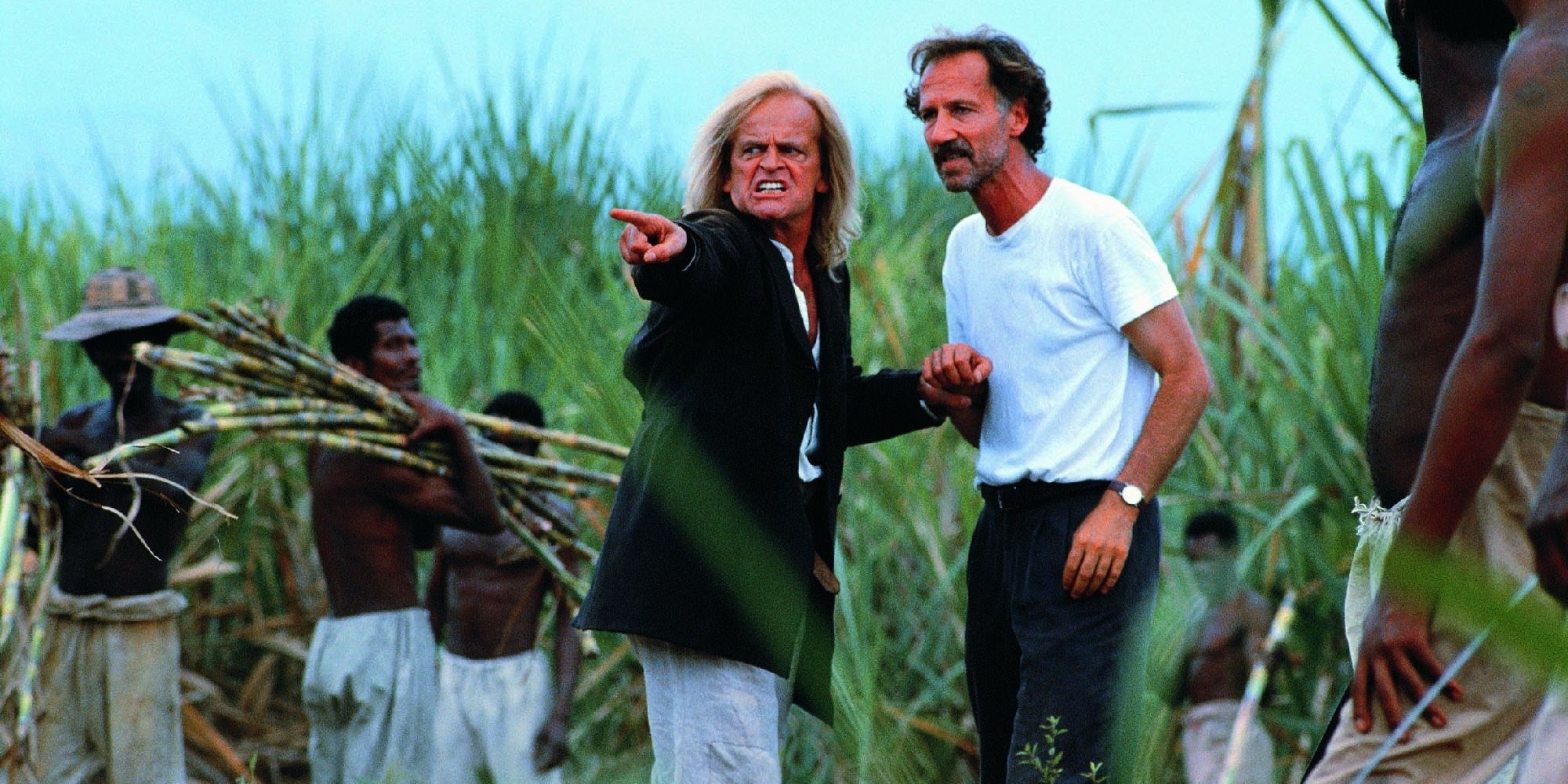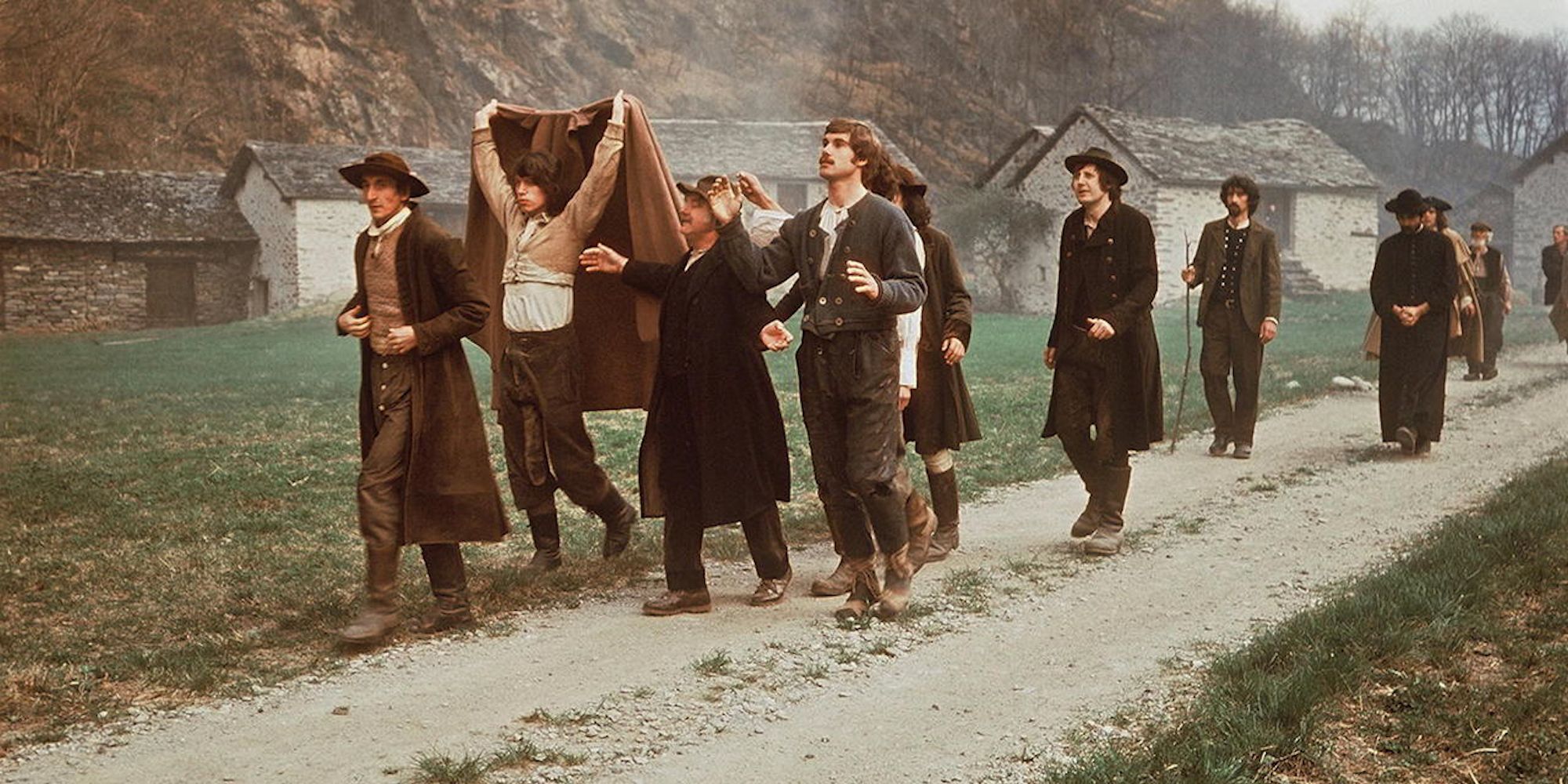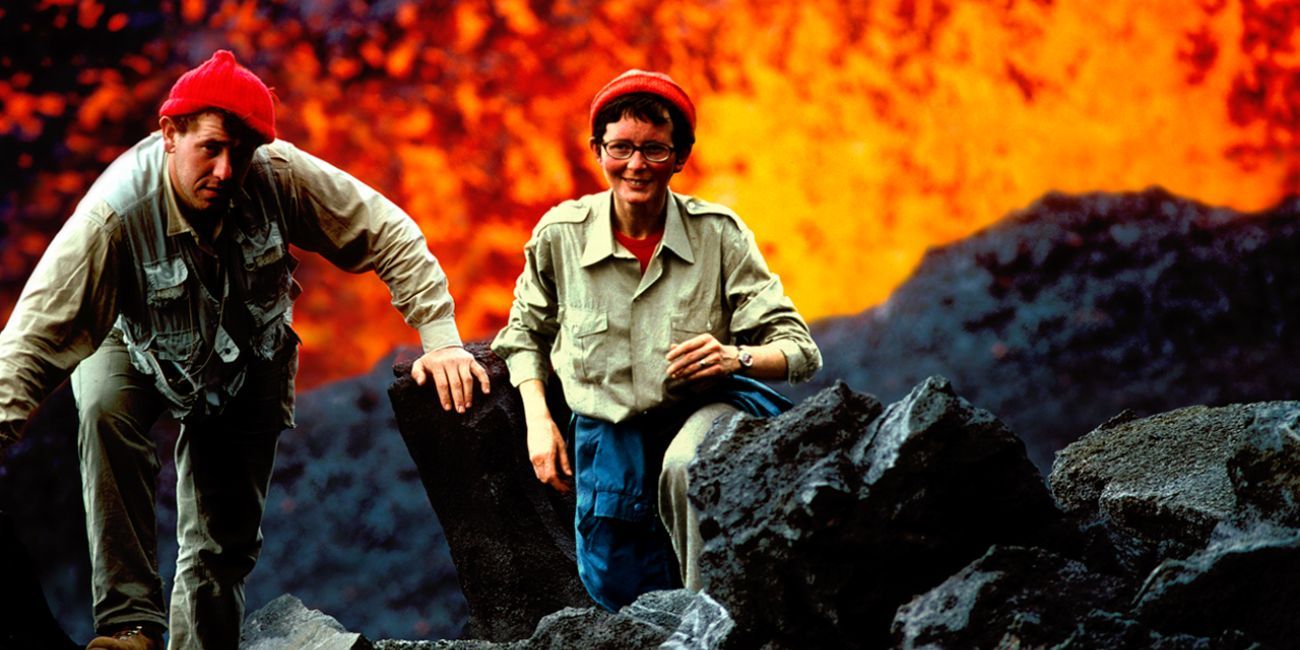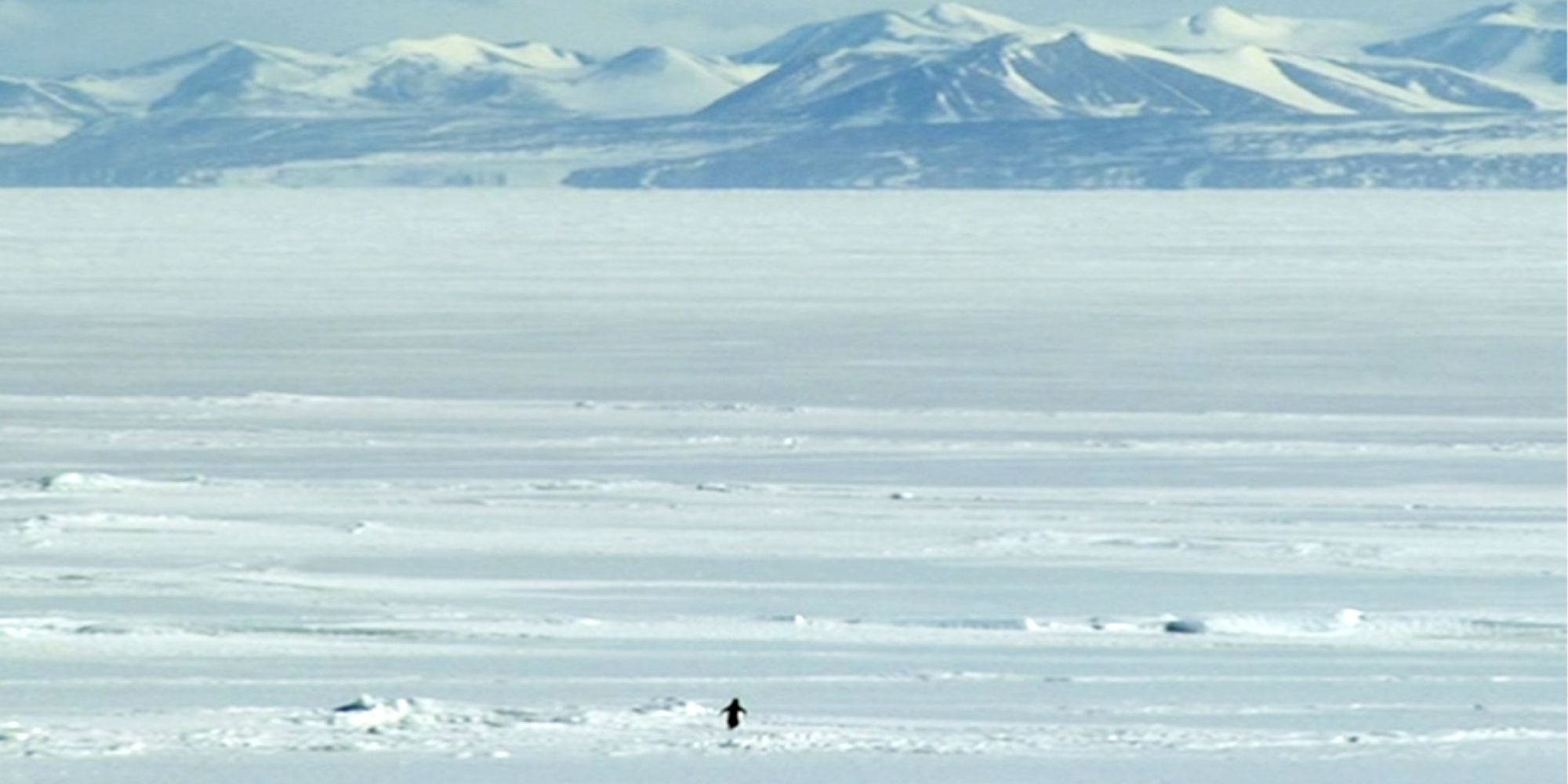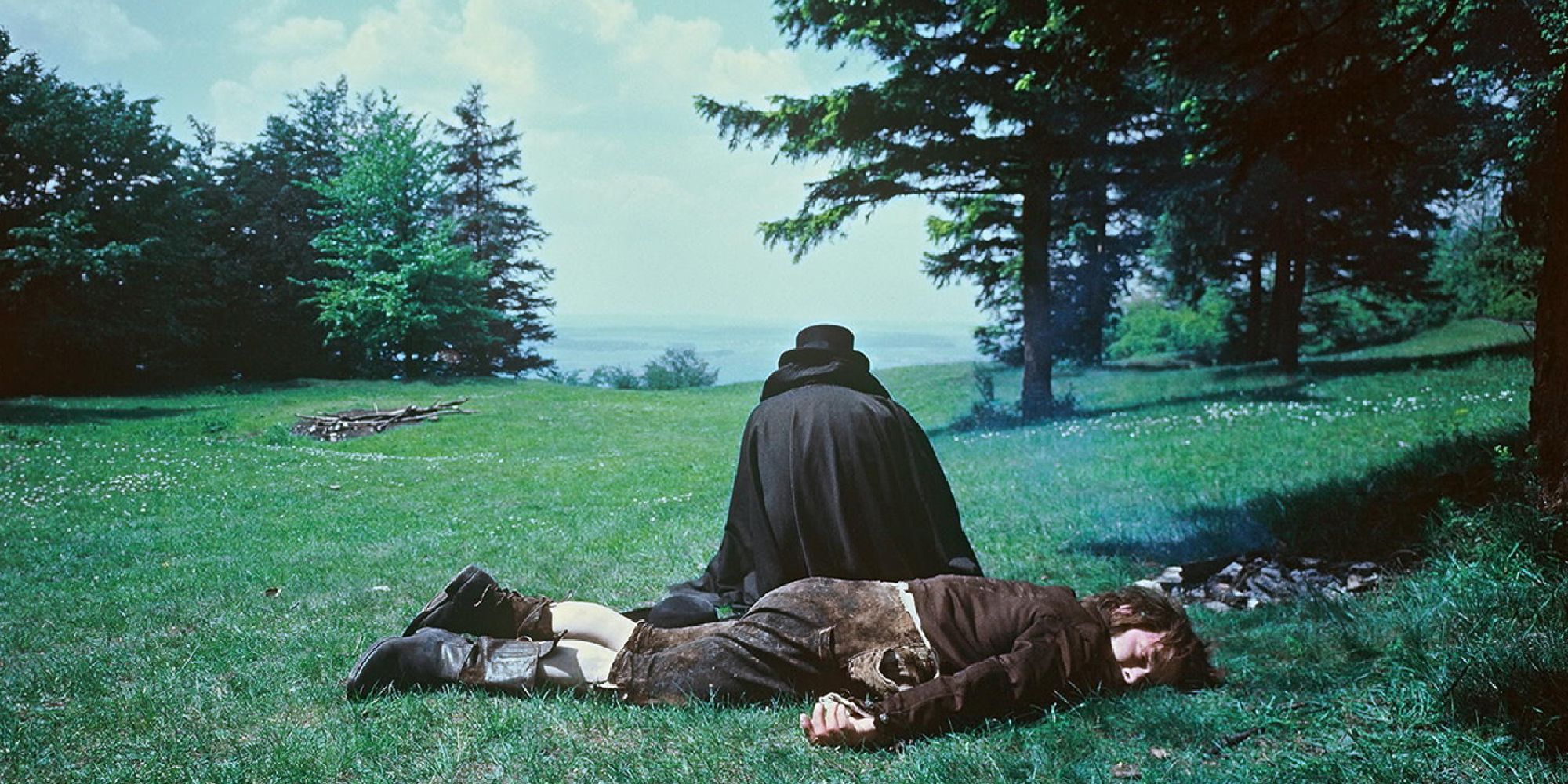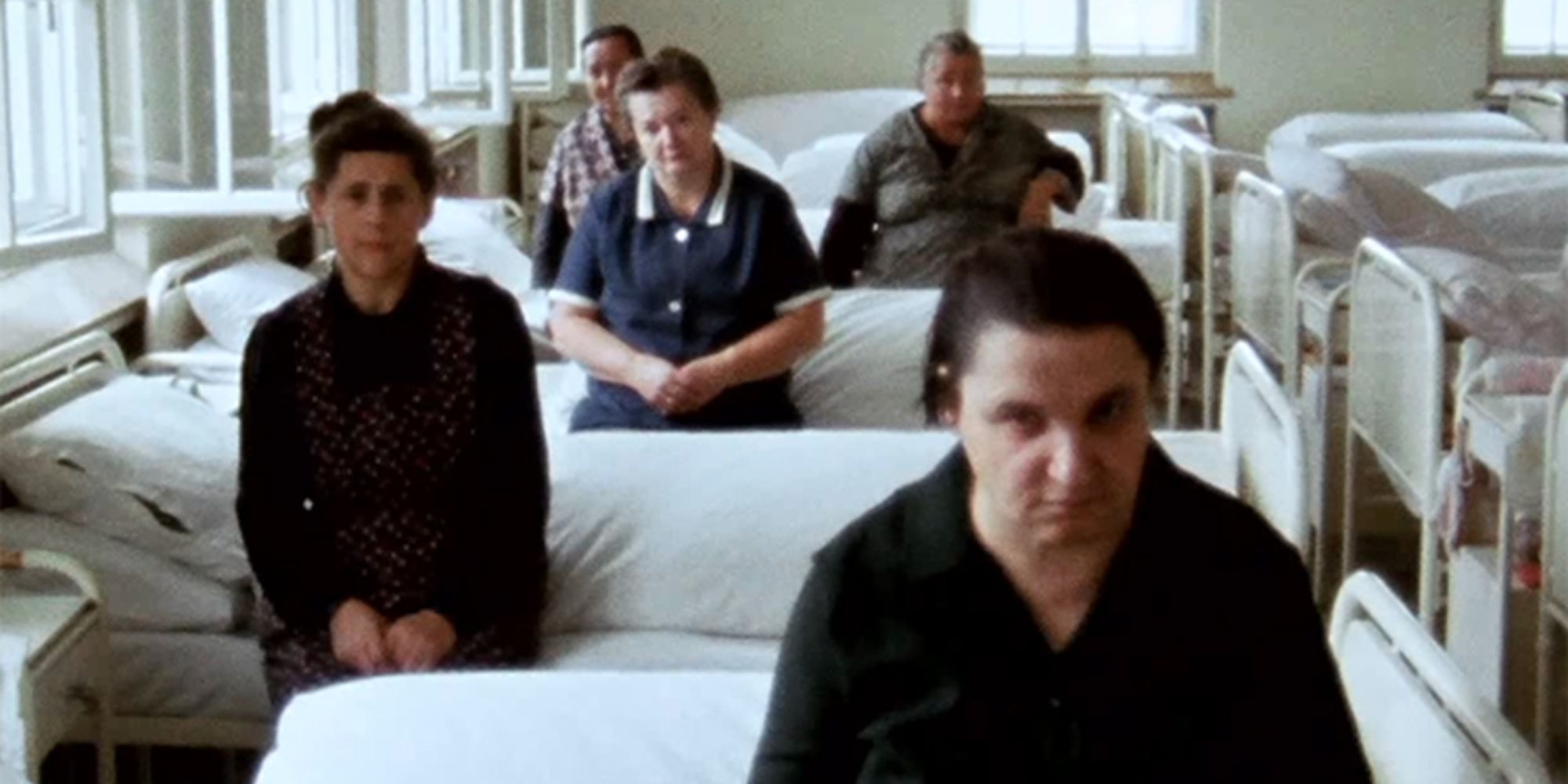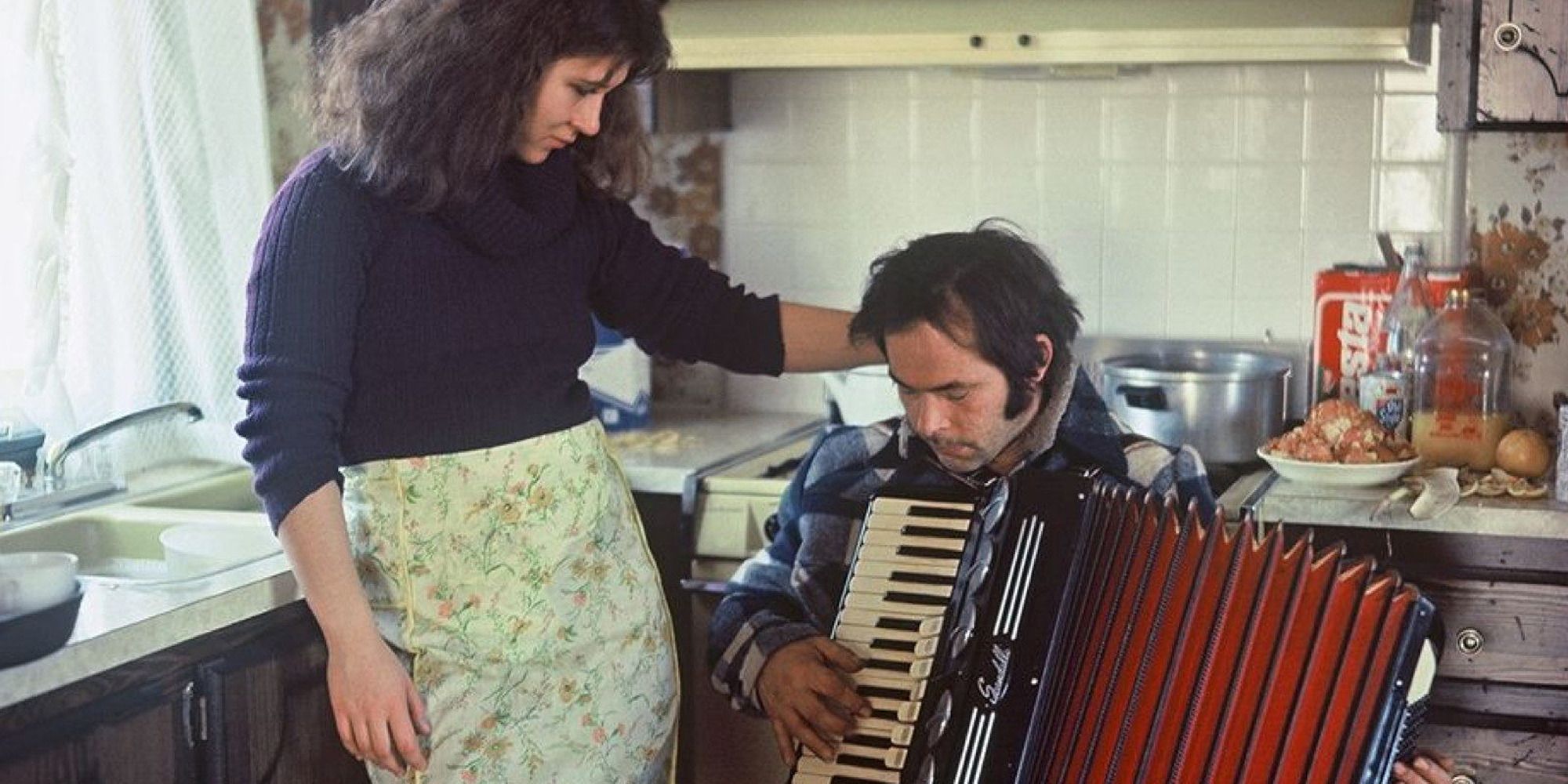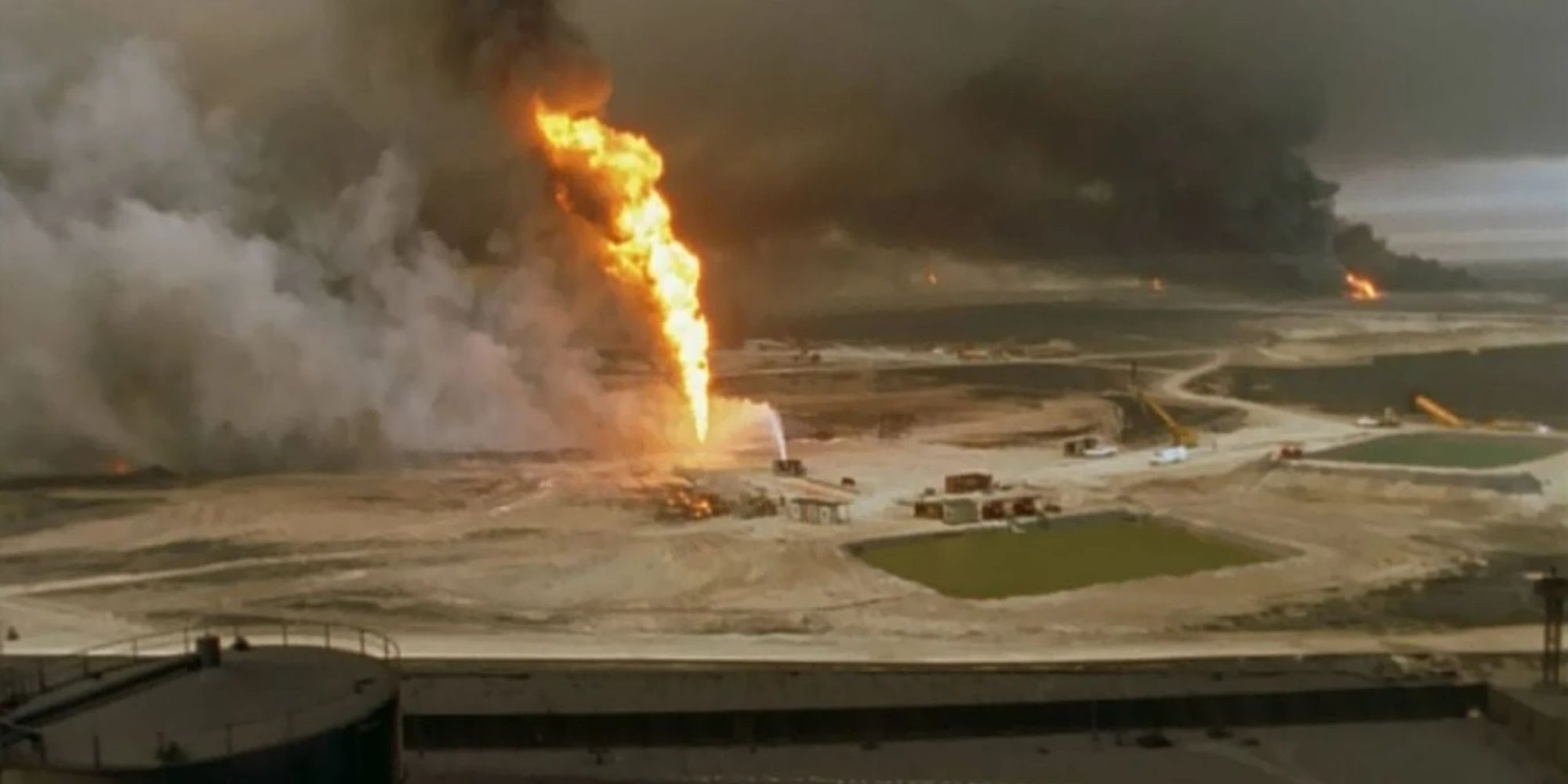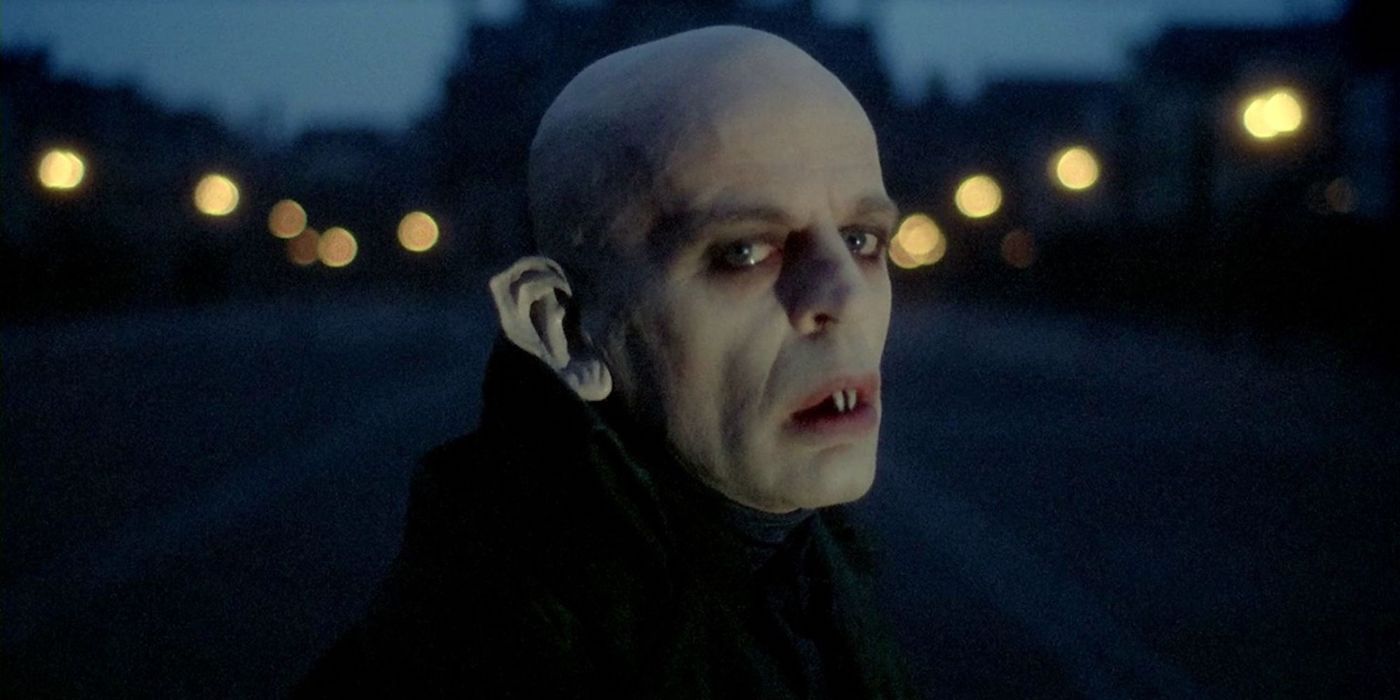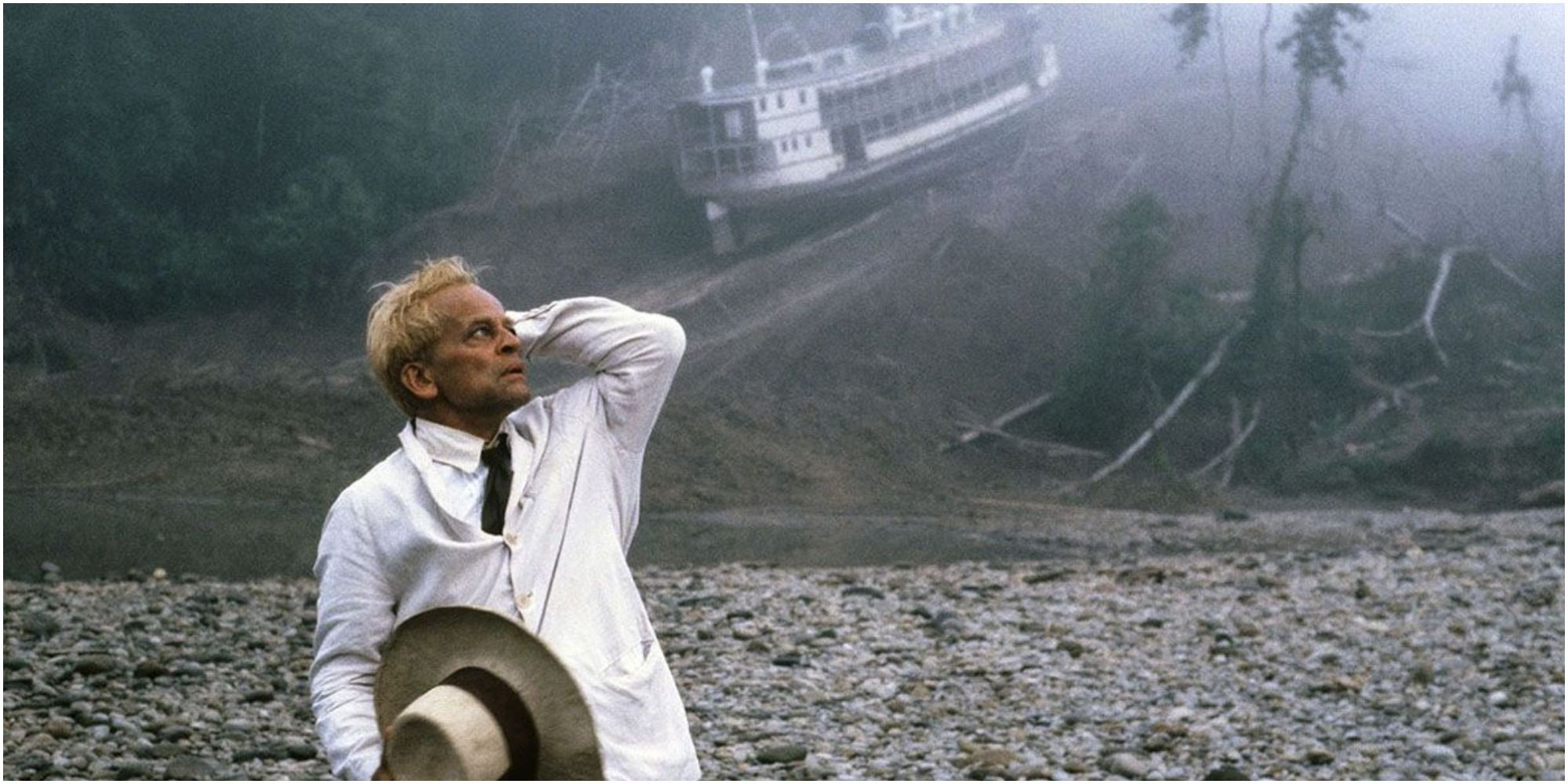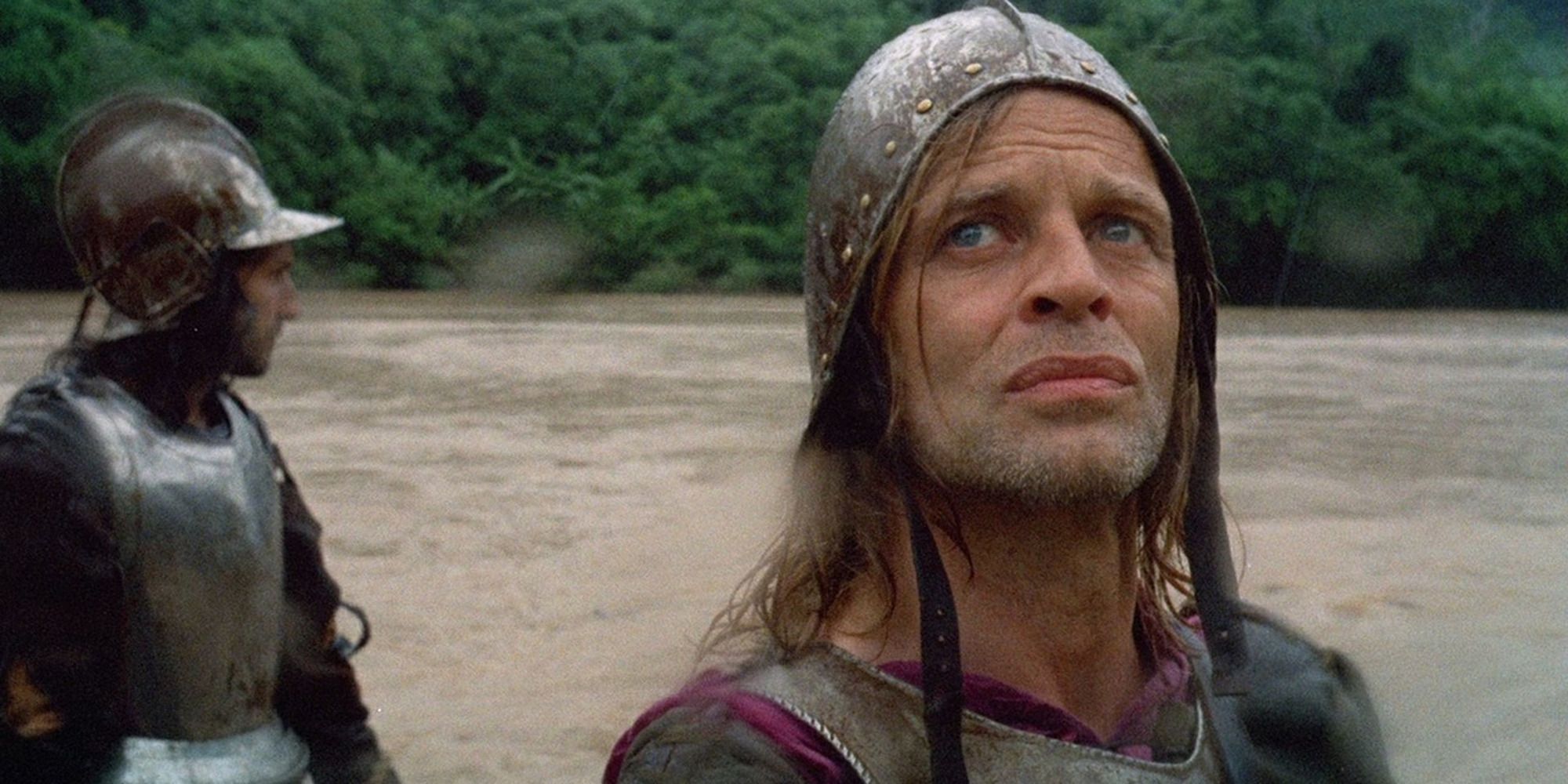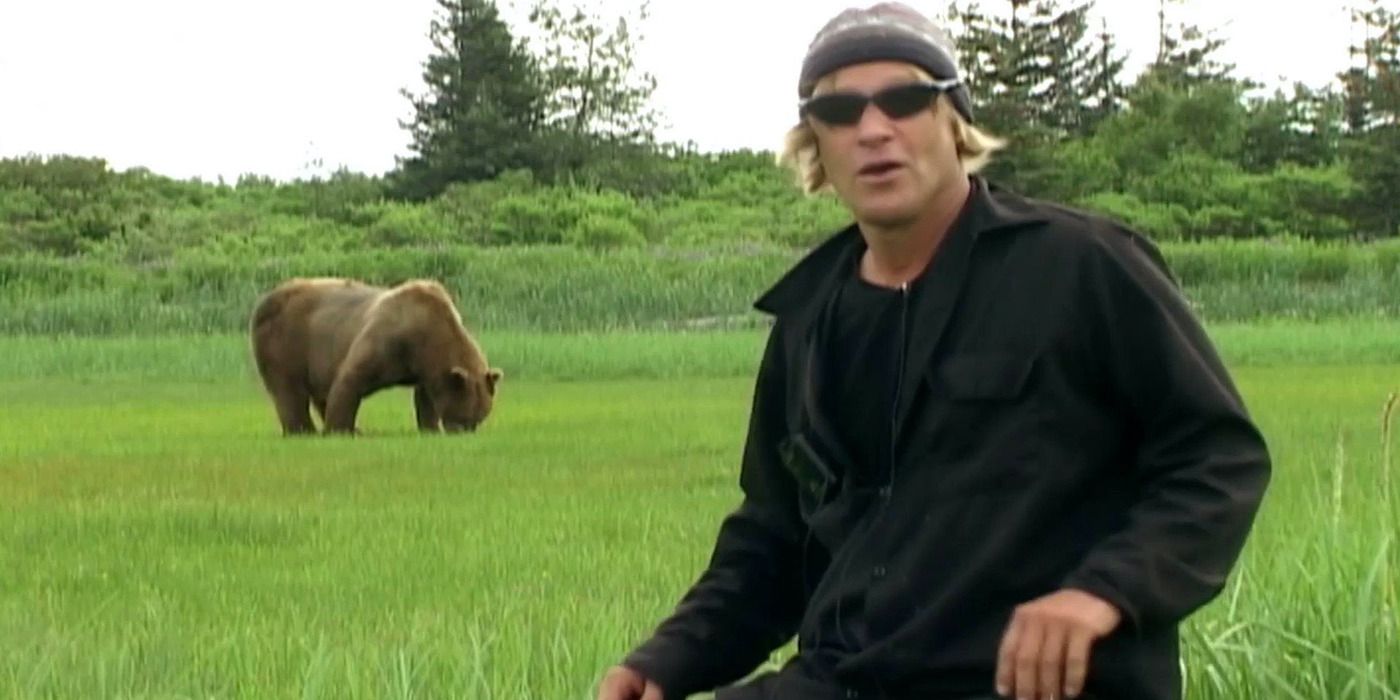Even before considering the numerous films he's directed, Werner Herzog is well-documented as being one of the coolest people ever to walk the earth. He has a singular way of looking at the world and discussing things, has a level of confidence that's almost unparalleled, and is genuinely funny, too. He once made good on a claim to eat his own shoe, was shot with an air rifle during an interview and was unfazed ("It's not a significant bullet," he stated), and was surprisingly moved by the Baby Yoda/Grogu puppet when he appeared in The Mandalorian.
All that aside, the following does aim to highlight the best of the best within Herzog's varied and constantly fascinating filmography. He's a legendary figure in his own right, but becomes even more of an icon when taking his directorial efforts into account (and, truth be told, his unique personality shines through in just about every film he's made). He's excelled in making both feature films and documentaries, as the following feature-length movies - ranked from great to greatest - demonstrate.
20 'The Great Ecstasy of Woodcarver Steiner' (1974)
Werner Herzog has made numerous compelling documentaries that qualify as short films, rather than feature-length. Admittedly, The Great Ecstasy of Woodcarver Steiner is right on the line between being a short film and a feature film, with its length of 45 minutes making it technically as short as feature films can get, by some definitions.
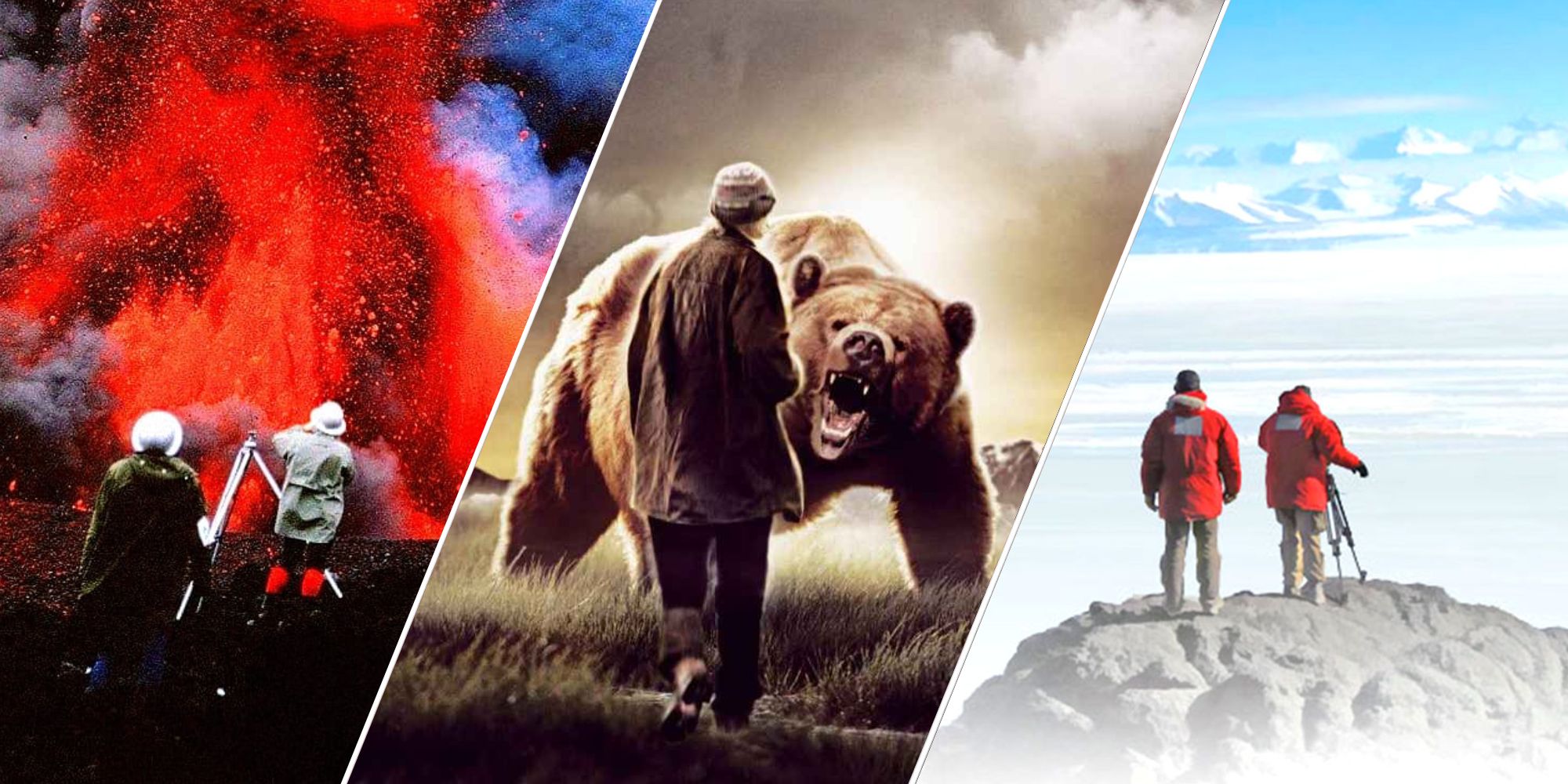
The 10 Best Werner Herzog Documentaries, Ranked
"Is there such a thing as insanity in a penguin?"This documentary provides an insight into the life of Walter Steiner, who works as a carpenter full-time but takes part in the dangerous sport of ski jumping as his passion. It's straightforward but compelling, and never runs the risk of becoming uninteresting, thanks to its condensed runtime, the excellent visuals, and the fascinating nature of its central subject.
19 'Woyzeck' (1979)
When Werner Herzog makes documentaries, he often explores the minds of offbeat or sometimes unconventional individuals, seemingly always fascinated by what makes them tick psychologically. When he makes feature films, his characters - whether based on real people or fictional - are usually unique or unusual, too, and this is demonstrated well by the underrated Woyzeck.
It's tense and disquieting without being a true horror or thriller film, instead being an immensely confronting psychological drama about a soldier in a small town gradually being driven to madness. It's one of five films Herzog made with the always fascinating Klaus Kinski in the lead role, and though not talked about as often as some of their collaborations, Woyzeck is still very much worth a watch for fans of Herzog and/or Kinski.
18 'Cave of Forgotten Dreams' (2010)
There's a certain simplicity to Cave of Forgotten Dreams that might not make it quite as likely to make an impression as other Herzog documentaries, but it's still very interesting. It's about the Chauvet caves in Southern France, which are well known for containing the oldest known painted images in history, which are thought to have been done more than 30,000 years ago.
Watching the film is as close as most will ever get to seeing these ancient works of art, as access to the Chauvet caves is extremely limited, due to how historically significant they are. It's compelling to watch Herzog explore the caves and the art within, as well as interview various historians and scientists about the subject.
17 'Signs of Life' (1968)
Werner Herzog began making movies when he was still in his 20s, the earliest of which were released in the 1960s. As such, when it comes to a film from as early in Herzog's career as Signs of Life, you do have to accept that the soon-to-be great director was still finding his voice. This is true of this 1968 film, which was Herzog's feature film debut.
For a debut, it's quite good, following three men who are taken out of combat during World War II and forced to stay on a small Greek island for a lengthy period of time. They are gradually driven mad (like many characters in Herzog's movies) from the isolation, which leads to the third act exploding in chaos. It's interesting to see the director's style and broad interests depicted and explored so early on, with Signs of Life showing, funnily enough, signs of greatness to come.
16 'Into the Abyss' (2011)
A moving and unique crime documentary, Into the Abyss is bleak but also quite absorbing. It takes a more empathetic and neutral approach to covering crime than many comparable documentaries, exploring capital punishment and violent crime from the perspectives of all involved - the perpetrators, those who knew the victims, and members of the justice/prison systems.
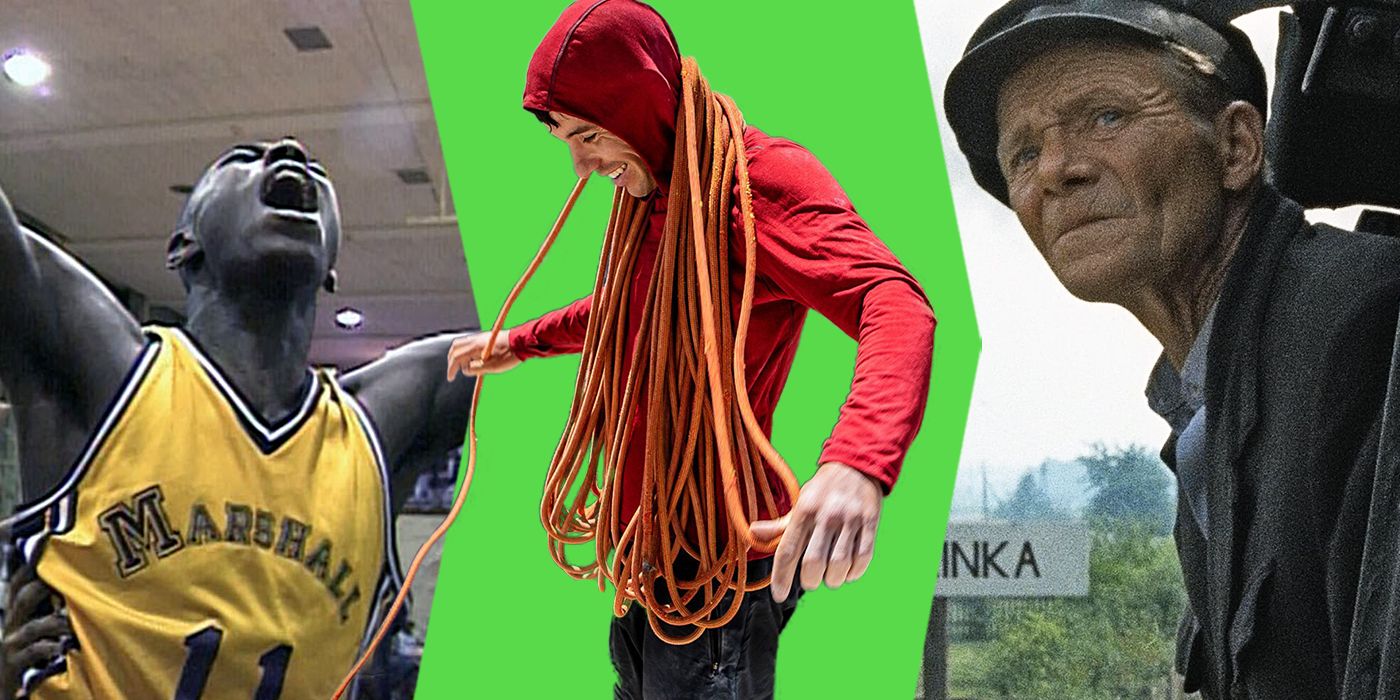
The 30 Best Documentaries of All Time, Ranked
From Grizzly Man to Hoop Dreams to Free Solo, this is Collider's ranking of the greatest documentary movies ever made.It offers little by way of easy answers, but that's by design, as the case looked at and the themes explored are anything but easy. It's a bold, sometimes perplexing, and ultimately commendable piece of documentary filmmaking, and arguably one of the best crime-related documentaries in recent memory.
15 'Rescue Dawn' (2006)
In 1997, Werner Herzog made a documentary about Dieter Dengler, a US Fighter pilot who was shot down in the Vietnam War and made a prisoner of war. He escaped and had to survive in the jungles of Vietnam for a great deal of time on his own, with 2006's Rescue Dawn being a feature film covering the events Herzog had already explored in documentary format.
It's a more conventional way of telling an already well-told story, but holds up as a genuinely good war/drama film about survival and human resilience. It's also benefited greatly from a typically excellent central performance by Christian Bale, who appeared in this between two Batman films: Batman Begins (2005) and The Dark Knight (2008).
14 'Bad Lieutenant: Port of Call – New Orleans' (2009)
In a career filled with bombastic and strangely engrossing performances, few Nicolas Cage movies are quite as bizarre as Bad Lieutenant: Port of Call – New Orleans. Despite the similar title, it's not exactly linked to 1992's Bad Lieutenant, which starred Harvey Keitel as a police lieutenant who wasn't exactly good.
Cage stars in this non-sequel as a troubled police sergeant addicted to painkillers and wrapped up in a complex case that involves multiple murders. It's a trippy, dark, and also strangely funny (at times) crime/drama film, and though its unusual qualities might turn some people off, others might well find the film's strangeness intoxicating.
13 'Little Dieter Needs to Fly' (1997)
Almost 10 years before Rescue Dawn, Werner Herzog made his first film - a documentary - about US Fighter pilot Dieter Dengler: Little Dieter Needs to Fly. The same story of survival against near-impossible odds is told here, albeit mostly through the words of Dengler himself, who's interviewed thoroughly throughout the documentary.
The personal nature of this documentary makes the story here even more compelling than it was in the later-released Rescue Dawn. It's a harrowing but captivating piece of filmmaking, and overall feels like one of Herzog's most underrated and criminally overlooked documentary works.
12 'My Best Fiend' (1999)
Anyone interested in the fruitful yet intense relationship between Werner Herzog and Klaus Kinski ought to check My Best Fiend out. This is something of an autobiographical documentary by Herzog, as it quite openly covers the ups and downs of the truly unique bond between director and actor.
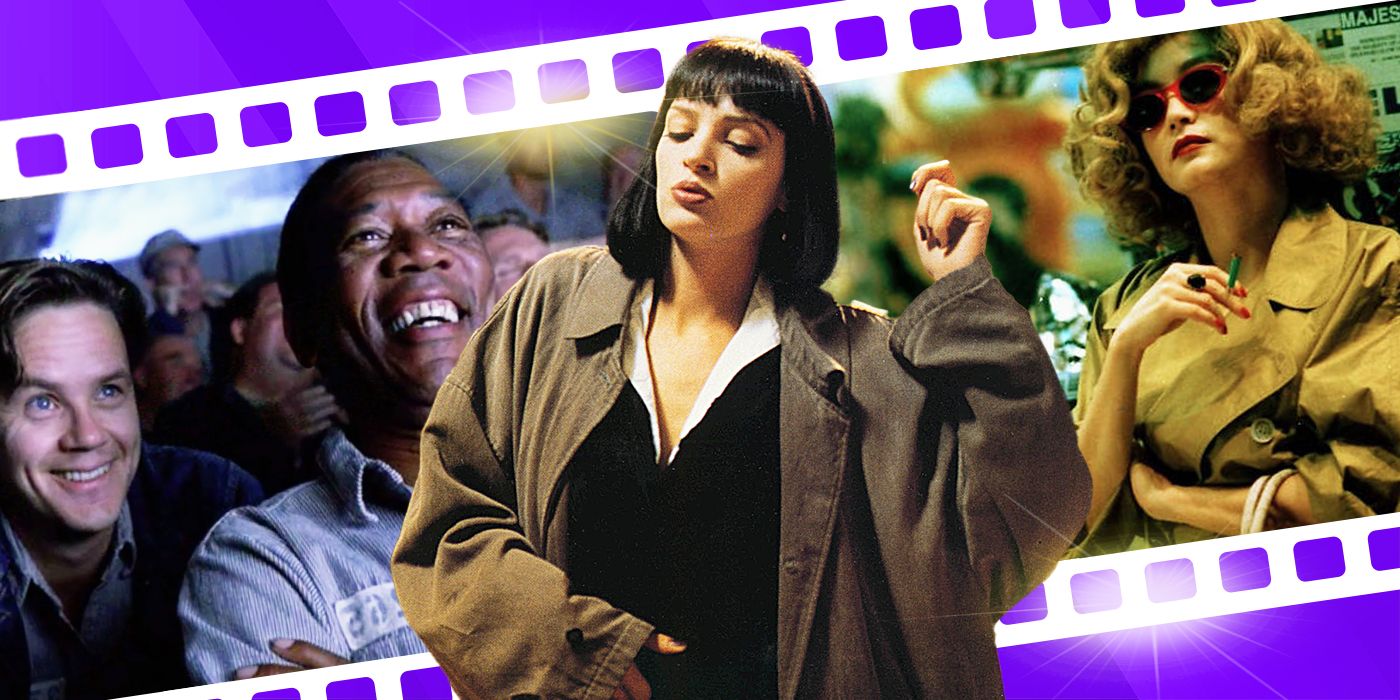
The 50 Greatest Movies of the 1990s, Ranked
From 'Unforgiven' to 'Pulp Fiction' to 'The Matrix,' this is Collider's ranking of the best movies of the 1990s.It would be doing the documentary an injustice to go into too much detail, but much of it is truly surprising, sometimes in a way that's darkly funny, and sometimes in a way that's simply uncomfortable. Two unusual men both worked together and made magic together, even though the cost of doing so was high, and it's this dynamic that's explored and unpacked in a thoroughly entertaining way throughout My Best Fiend.
11 'Heart of Glass' (1976)
Even by the standards of a Werner Herzog film, Heart of Glass is remarkably strange. The basic premise is that there's a village known for making particularly intricate glassworks, but the foreman dies suddenly and is unable to pass on the secrets regarding how he does what he does, leading the surviving inhabitants of the village to descend into madness.
It's a film where learning the backstory behind how it was made makes it easier to appreciate, as Herzog made the bold choice to hypnotize most of his cast before filming them. This leads to a movie where interactions and exchanges of dialogue often feel uncanny and unsettling, but by design, with Herzog portraying a town gone mad in an interesting and supremely disquieting manner.
10 'The Fire Within: Requiem for Katia and Maurice Krafft' (2022)
Released the same year as Fire of Love, which tells the same broad story, The Fire Within: Requiem for Katia and Maurice Krafft is easily the best documentary Werner Herzog's made in the last 10 - maybe even 15 - years. Its titular subjects were partners, volcanologists, and filmmakers, and were two people that clearly fascinated Herzog.
Their story is a tragic one, but their passion and bravery are celebrated to some extent here, even if Herzog frames things in a less sentimental and romantic manner than Fire of Love did. Both films are fascinating to watch, to see two different documentary takes on the same subjects, and even on its own, Herzog's film about Katia and Maurice Krafft is still visually striking, emotionally haunting, and overall thought-provoking.
9 'Encounters at the End of the World' (2007)
In Encounters at the End of the World, Werner Herzog travels to the most isolated and harsh continent in the world: Antarctica. While there, he captures remarkable images of natural surroundings and wildlife, meeting people who work there while providing commentary on various things that he encounters during his time there.
It's somewhat reminiscent of the groundbreaking 1922 documentary The Great White Silence, which covers some similar things but with very different presentation (it is a silent film, after all). Herzog's outlook on one of the world's most fascinating and mysterious places is consistently engrossing, with his unique perspective on a unique place making for a truly singular documentary.
8 'The Enigma of Kaspar Hauser' (1974)
Werner Herzog made many of his greatest movies in the 1970s, a decade when he was arguably at his peak as an artist (or at least his most consistent/prolific). One of the great films he made during this time was The Enigma of Kaspar Hauser, which tells an unsettling true story about a boy who was raised in a room, cut off from the world, and then set free when he was about 17 years old.
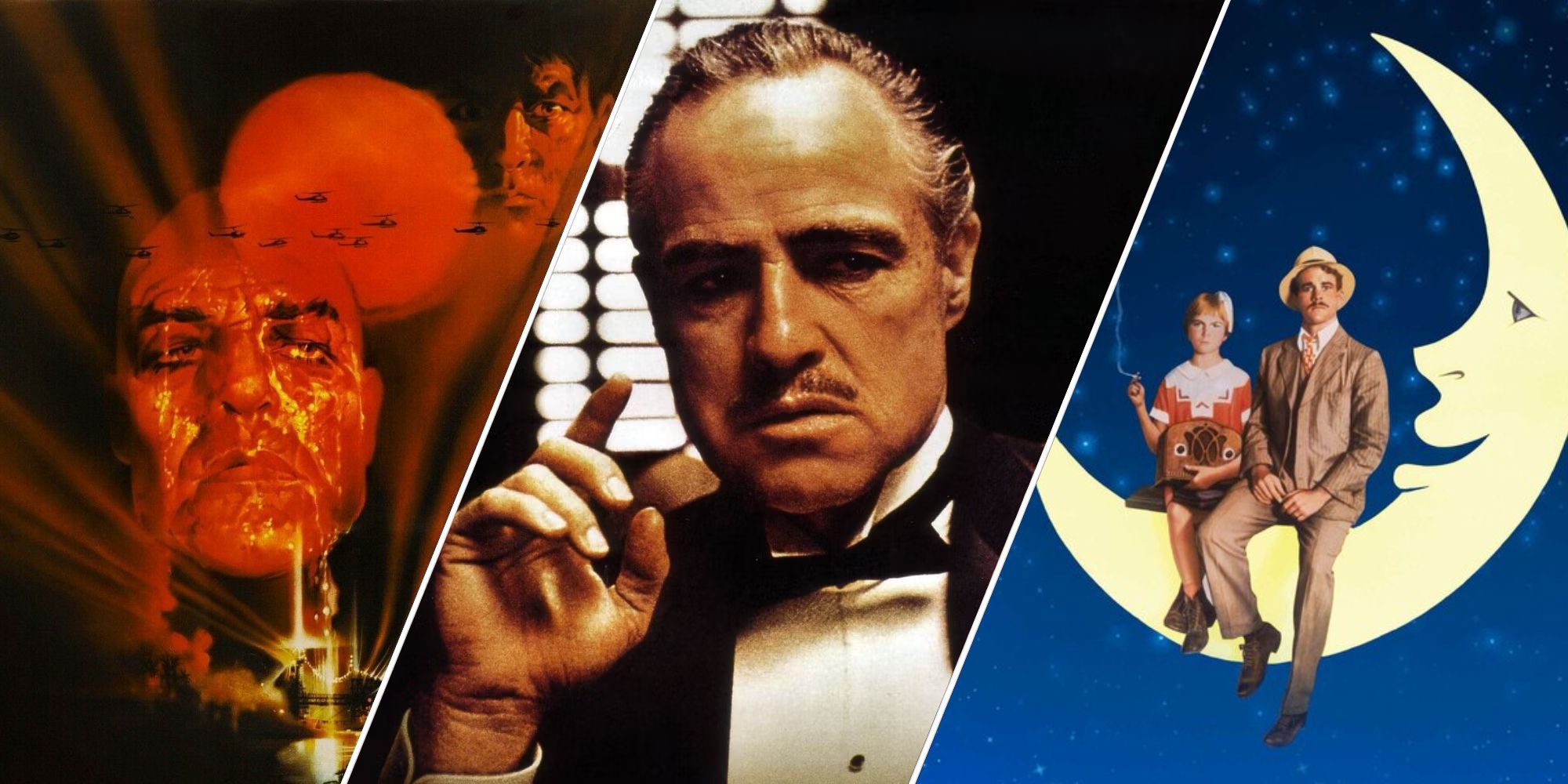
The Best Movie from Every Year of the 1970s, According to Letterboxd
Cinephile selections from one of greatest decades for cinema.Much of the film follows Kaspar Hauser's attempts to fit into a world he's never known, with things taking place in the early 1800s and apparently being based on a real-life story. It's a slow, strange, and upsetting film, but it's also oddly captivating and showcases Herzog's empathetic qualities as a filmmaker more so than just about any other non-documentary he's ever made.
7 'Land of Silence and Darkness' (1971)
Land of Silence and Darkness was one of Werner Herzog's first feature-length documentaries, and remains standing to this day as one of his very best. Its central subject is Fini Straubinger, an older woman who's been blind and deaf since she was a teenager, with the film exploring how she lives her life with such a difficult condition.
It's a sad documentary with some hope, and it again speaks to the resilience of the human spirit when it comes to surviving and continuing to live no matter the challenge. Straubinger and the other people covered here represent a group that most people might not think about too often, but Herzog did when he made this, creating a document and tribute to them that sheds light on - and promotes understanding around - how people without sight and hearing get by living in the world around them.
6 'Stroszek' (1977)
When Werner Herzog first worked with Bruno Schleinstein on The Enigma of Kaspar Hauser, Schleinstein played the title role there without any prior acting experience. Herzog cast him because of this, with it helping to tell the dramatic fish out of water story there, and Herzog gets Schleinstein to play a similarly singular role in Stroszek, made several years on from The Enigma of Kaspar Hauser.
Stroszek's title character is a man who's lost in the world, doing what he can to survive as a street musician even if the odds seem constantly stacked against him. Herzog tells this story in an unsentimental and crushingly realistic way, making Stroszek an upsetting but undeniably effective film, and one of the most haunting in the filmmaker's entire body of work (and that's truly saying something).
5 'Lessons of Darkness' (1992)
A war documentary with a twist, Lessons of Darkness represents Werner Herzog at his most experimental, and at his least willing to offer a conventional narrative. This documentary is all about the aftermath of war, and the terrible destruction conflict can cause, here centered on the oil fields of Kuwait shortly after the Gulf War.
Much of the film is made up of haunting scenes showing oil fields in disarray, with the film having a fiery and even apocalyptic feel to it, in part thanks to the film's menacing style and eerie soundtrack. It's one of the most subtly nightmarish documentaries ever made, and an incredibly strong anti-war statement done in a way that doesn't utilize typical anti-war movie tropes or cliches.
4 'Nosferatu the Vampyre' (1979)
There have been plenty of great Dracula movies made throughout cinema history, with the character often being seen as representing the peak of vampire-related fiction. This is generally fair enough, but there's a case to be made that Werner Herzog's Nosferatu the Vampyre might actually be the best, itself a remake of a silent classic from 1922, Nosferatu, which was an unofficial adaptation of Dracula.
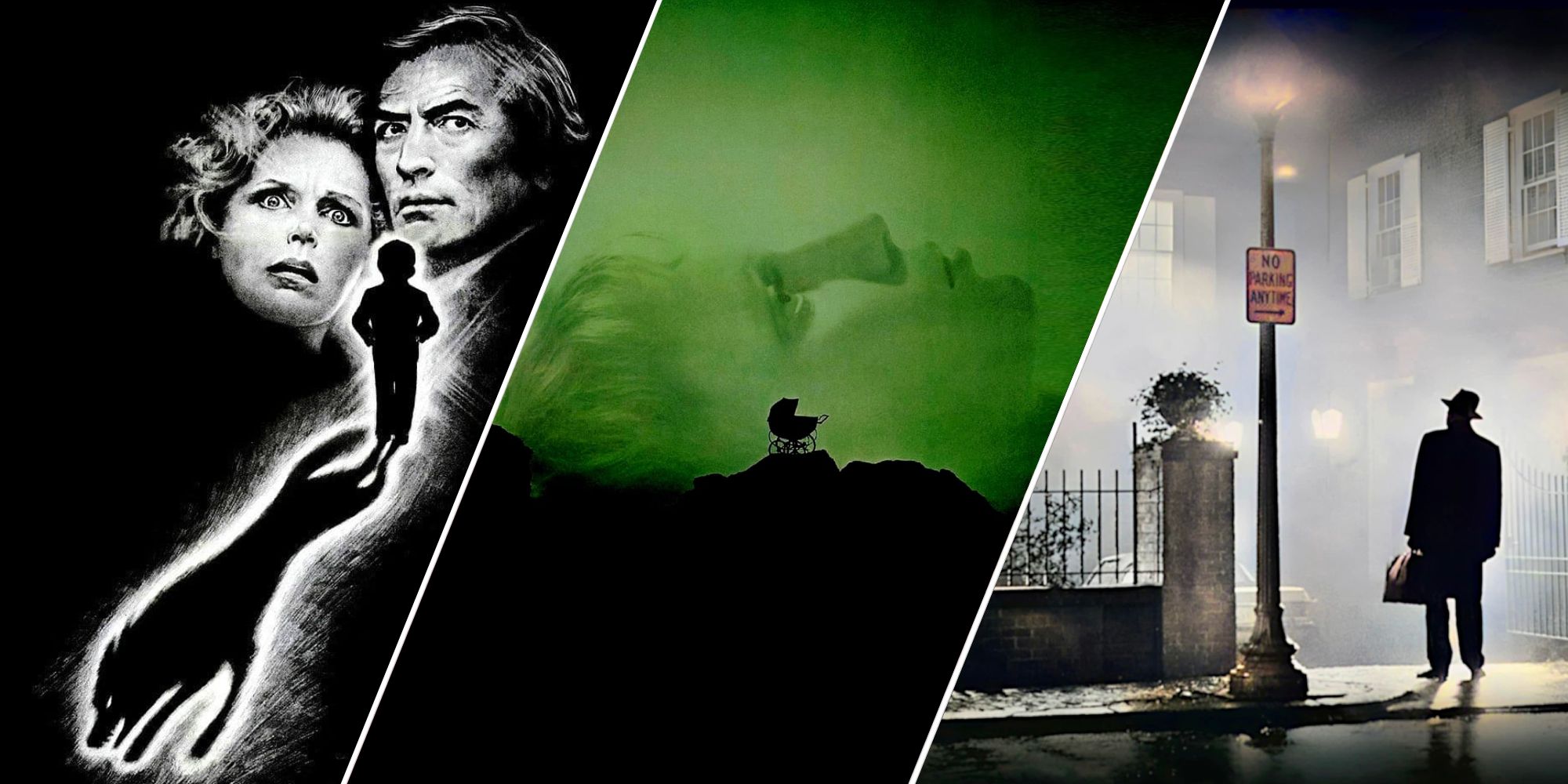
The 10 Best Horror Movies That Are Also Great Dramas
Movies that'll have you crying tears...of blood!It's a very unsettling, eerie, and impressionistic horror film with an undeniably striking atmosphere that serves the tragic vampire story at its center well. It also marks another film that saw Herzog collaborating with Klaus Kinski, with the latter memorably playing the titular vampire (or "vampyre") here to stunning effect.
3 'Fitzcarraldo' (1982)
Another iconic Werner Herzog + Klaus Kinski movie was Fitzcarraldo, which is arguably the most epic movie of Herzog's entire filmmaking career. At 157 minutes, it's certainly a big movie when it comes to runtime, and the premise is similarly astounding, given it tells the story of one man's determined mission to transport a steamship through the jungle to access a source of rubber in the Amazon basin.
The story of its production is arguably more engaging than the film itself, or it could well be the case that the production was the movie, given Herzog and his crew really did transport a giant steamship over land. While it wasn't directed by Herzog, the documentary Burden of Dreams details the behind-the-scenes story of the film remarkably well, doing for Fitzcarraldo what the documentary Hearts of Darkness did for Apocalypse Now.
2 'Aguirre, the Wrath of God' (1972)
Of the five Werner Herzog movies that Klaus Kinski starred in, Aguirre, the Wrath of God would have to be the best. It also feels safe to call it the greatest non-documentary Herzog ever made, with its tale about madness and an ill-fated adventure into the heart of the wilderness being perfectly suited to Herzog's sensibilities... and within the film, such a tale is also perfectly told.
Herzog released it when he was only 30, and it represented a point in which he'd already perfectly developed his singular voice and distinctive style. Quite simply, Aguirre, the Wrath of God is one of the best movies of the 1970s, and certainly of 1972, with it also representing a perfect place to start for anyone who's curious about Herzog's filmography but hasn't yet seen any of his films.
1 'Grizzly Man' (2005)
It's not often that one of the very best movies of the year is a documentary, but this is the case for 2005's Grizzly Man. This is the greatest of all the great documentaries Werner Herzog's made throughout his decades-long career, telling the tragic, uncomfortable, bizarre, and disturbing story of Timothy Treadwell, a man who lived among grizzly bears in Alaska's national parks for 13 summers before a bear attack cost him and his partner their lives.
Treadwell left behind hours upon hours of footage from his visits to the national parks, with such footage being used extensively throughout Grizzly Man. Herzog explores Treadwell as an artist and a man, trying to unpack this complex and distinct individual and get to the bottom of what drove him to do the dangerous things that eventually cost him his life. Easy answers aren't arrived at, but the entire story - and the way it's presented - is endlessly fascinating to think about. Beyond that, the documentary is also very moving and haunting, making it striking emotionally and intellectually, overall standing as the greatest single film in Herzog's spectacular body of work.

